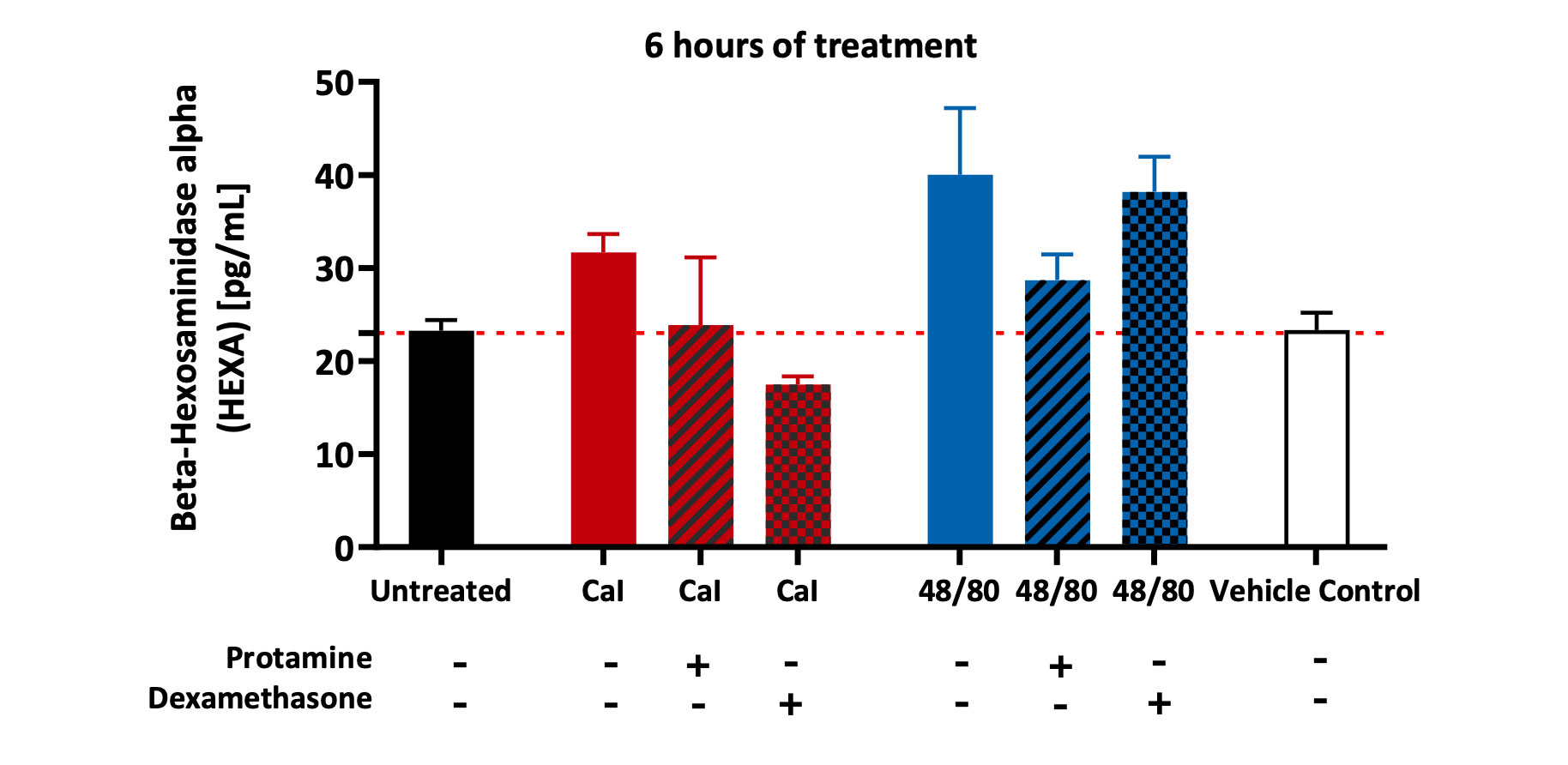Respiratory Assays
Mast Cell Degranulation
Mast cells are immune cells of the myeloid lineage and are present in connective tissues throughout the body. The activation and degranulation of mast cells significantly modulates many aspects of physiological and pathological conditions in various settings. With respect to normal physiological functions, mast cells are known to regulate vasodilation, vascular homeostasis, innate and adaptive immune responses, angiogenesis, and venom detoxification. On the other hand, mast cells have also been implicated in the pathophysiology of many diseases, including allergy, asthma, anaphylaxis, gastrointestinal disorders, many types of malignancies, and cardiovascular diseases (Krystel-Whittemore et al., 2016).
HMC1.2 cells were treated with Calcium Ionophore (CaI) and the mast cell degranulator, compound 48/80 (48/80); with or without Protamine or Dexamethasone. The vehicle control was 0.1% DMSO in culture media. Beta-hexosaminidase alpha (HEXA) was analysed in the cell lysates by ELISA. An increase in HEXA was observed in cells treated with CaI and 48/80 when compared to vehicle control/untreated cells. These levels of HEXA reduced when treated with inflammatory inhibitors such as Protamine and Dexamethasone.
Request a consultation with Cellomatics Biosciences today
Our experienced team of in vitro laboratory scientists will work with you to understand your project and provide a bespoke project plan with a professional, flexible service and a fast turnaround time.
To request a consultation where we can discuss your exact requirements, please contact Cellomatics Biosciences.











